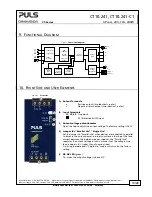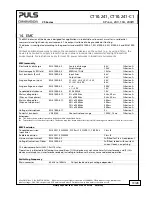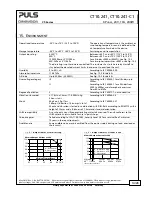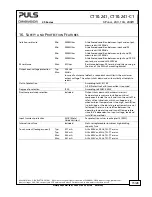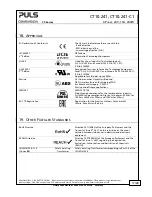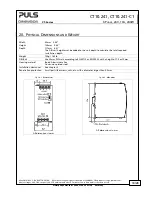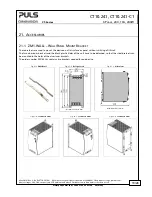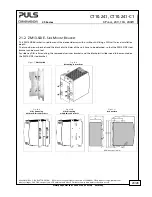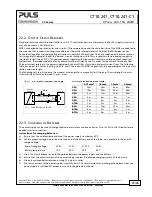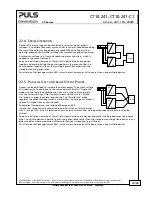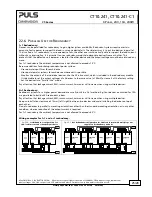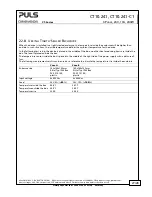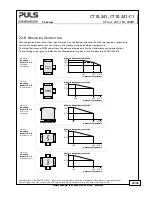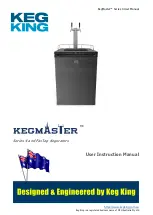
CT10.241, CT10.241-C1
CT-Series
3-P
HASE
,
24V,
10A,
240W
May 2018 / Rev. 2.0a DS-CT10.241-EN All values are typical figures specified at 3x 400Vac, 50Hz input voltage, symmetrical
phase voltages, 24V, 10A output load, 25°C ambient and after a 5 minutes run-in time unless otherwise noted.
www.pulspower.com Phone +49 89 9278 0 Germany
22/28
22.
A
PPLICATION
N
OTES
22.1.
P
EAK
C
URRENT
C
APABILITY
The unit can deliver peak currents (up to several milliseconds) which are higher than the specified short term currents.
This helps to start current demanding loads. Solenoids, contactors and pneumatic modules often have a steady state
coil and a pick-up coil. The inrush current demand of the pick-up coil is several times higher than the steady-state
current and usually exceeds the nominal output current (including the PowerBoost). The same situation applies when
starting a capacitive load.
The peak current capability also ensures the safe operation of subsequent circuit breakers of load circuits. The load
branches are often individually protected with circuit breakers or fuses. In case of a short or an overload in one branch
circuit, the fuse or circuit breaker need a certain amount of over-current to open in a timely manner. This avoids
voltage loss in adjacent circuits.
The extra current (peak current) is supplied by the power converter and the built-in large sized output capacitors of
the power supply. The capacitors get discharged during such an event, which causes a voltage dip on the output. The
following examples show typical voltage dips for resistive loads:
Fig. 22-1
20A peak current for 50ms, typ.
(2x the nominal current)
Fig. 22-2
50A peak current for 5ms, typ.
(5x the nominal current)
Peak current voltage dips
Typ.
from 24V to 6V
At 20A for 50ms, resistive load
Typ.
from 24V to 12V
At 50A for 2ms, resistive load
Typ.
from 24V to 3V
At 50A for 5ms, resistive load



